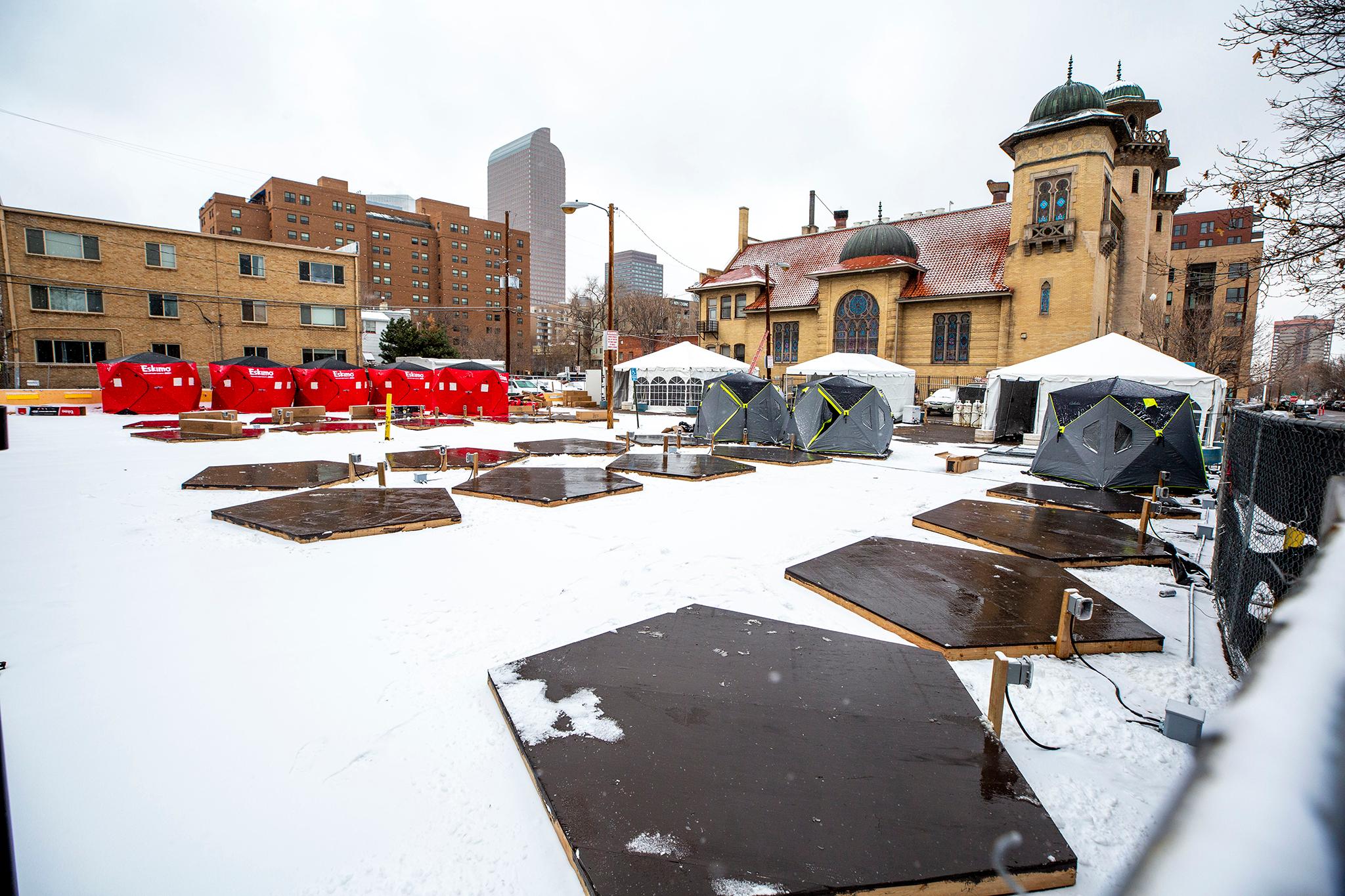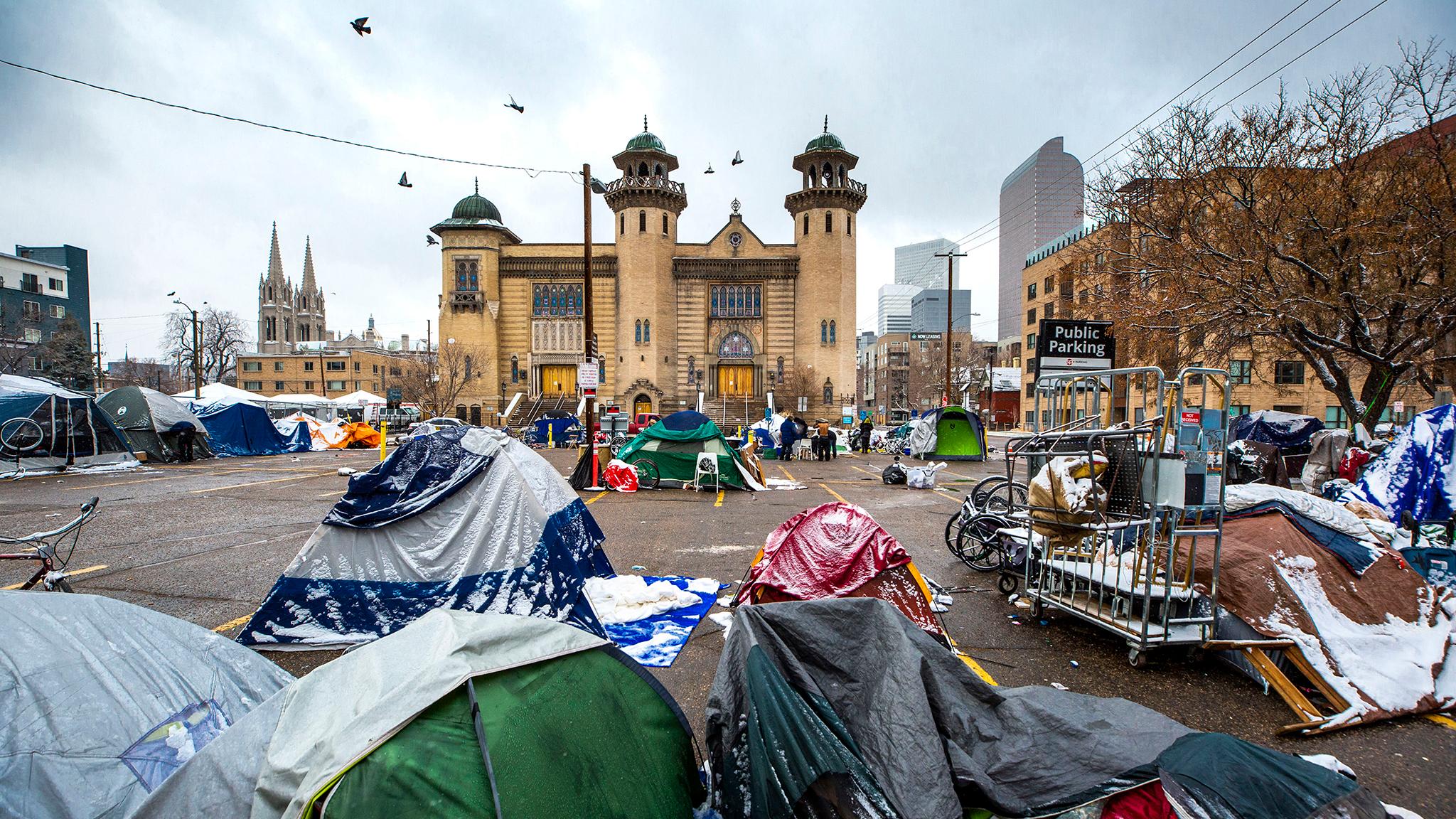City workers charged with keeping Denver's streets clean and clear are moving in on a homeless encampment on Tuesday, the same day that city lawyers will be in federal court defending such operations.
Another Department of Transportation and Infrastructure cleanup is scheduled two days later at another encampment, this one located at the same corner where the city has authorized a nonprofit to set up and manage a temporary camp for people experiencing homelessness.
In a class action suit, people experiencing homelessness and the advocacy group Denver Homeless Out Loud are asking federal Judge William Martinez to order the city to stop cleanups, citing guidance from the Centers for Disease Control and Prevention in arguing that clearing encampments can increase the risk of spreading disease during the pandemic by causing "people to disperse throughout the community and break connections with service providers."
In court papers filed in response to the suit, the city says any "total prohibition on cleanings and public health area restrictions ... will unquestionably lead to deteriorating health and safety conditions that may be irreparable when they cannot be addressed by Denver's consistent and measured approach."
Judge Martinez is set to hear evidence, including testimony from top city public safety and health officials, during hearings in the case scheduled for Tuesday and Wednesday. It's not clear when Martinez will issue a ruling. A cleanup is scheduled Tuesday around the intersection of Fourth Avenue and Kalamath Street in the Baker neighborhood.
On Thursday, a cleanup is scheduled around the intersection of 16th Avenue and Pearl Street. That's near the parking lot of Denver Community Church's Uptown location at 1595 Pearl St., where the Colorado Village Collaborative was to open the city's second sanctioned camp site this week. The Community Church site, with 30 tents for a maximum of 40 people, is for single men and women, couples, people with pets and individuals who identify as LGBTQ.
Cole Chandler, executive director of Colorado Village Collaborative, said he hoped to be able to move people from the unsanctioned camp into sanctioned camping starting early in the week, but said that would depend in part on getting final approval from city inspectors for the Community Church site.
"Our wild hope is that they show up Thursday and there's nobody there to sweep," he said.
Chandler said he was not sure how many people were living in the unsanctioned camp, estimating that it could be as many as 50 and that it had been growing recently. While the Community Church site can accommodate a maximum of 40, Chandler said space was also available at a sister camp that opened the previous week.
The sister camp, in the parking lot of the First Baptist Church at 1373 Grant St. in Capitol Hill, is managed by the nonprofit EarthLinks. It has 22 tents and accommodates a maximum of 30 women and transgender people.
Both sanctioned camp sites are to shut down after six months, sheltering people during the worst of the winter and amid a surge in COVID cases.

The camps will have 24-hour staffing and people living in them will be provided with tents, toilets, showers and regular trash pickup, as well as mental health and other counseling. Proponents of sanctioned camping hope that with support and without the disruption and displacement that comes with city cleanups, some residents of the camps will be able to move on to stable housing. To stay in the camps, people will have to adhere to such rules as no drugs, no violence and no trespassing on other property in the neighborhood.
Denver voters last May overwhelmingly backed keeping a ban on unsanctioned camping imposed by City Council in 2012. Mayor Michael Hancock has long opposed sanctioned camping, saying the city's priority should be getting people indoors. When Hancock announced in July that he would allow sanctioned camping as part of his administration's response to the COVID-19 pandemic, he added that by providing alternatives such as safe outdoor space, "we will be able to step up our enforcement" of Denver's camping ban.
Hancock has said repeatedly that the city must weigh the risk posed by coronavirus against the public health threat posed by trash, needles and human waste that has been cleared from encampments.
This corrects a previous version of the story in which the name of Denver's form public works department was incorrect. It is the Department of Transportation and Infrastructure.













